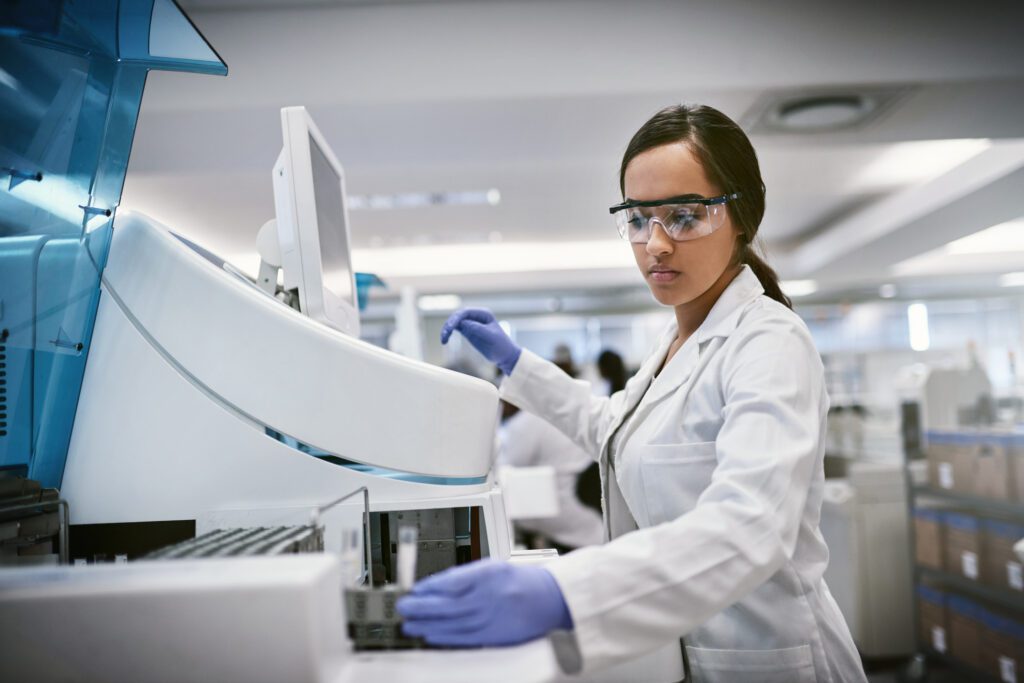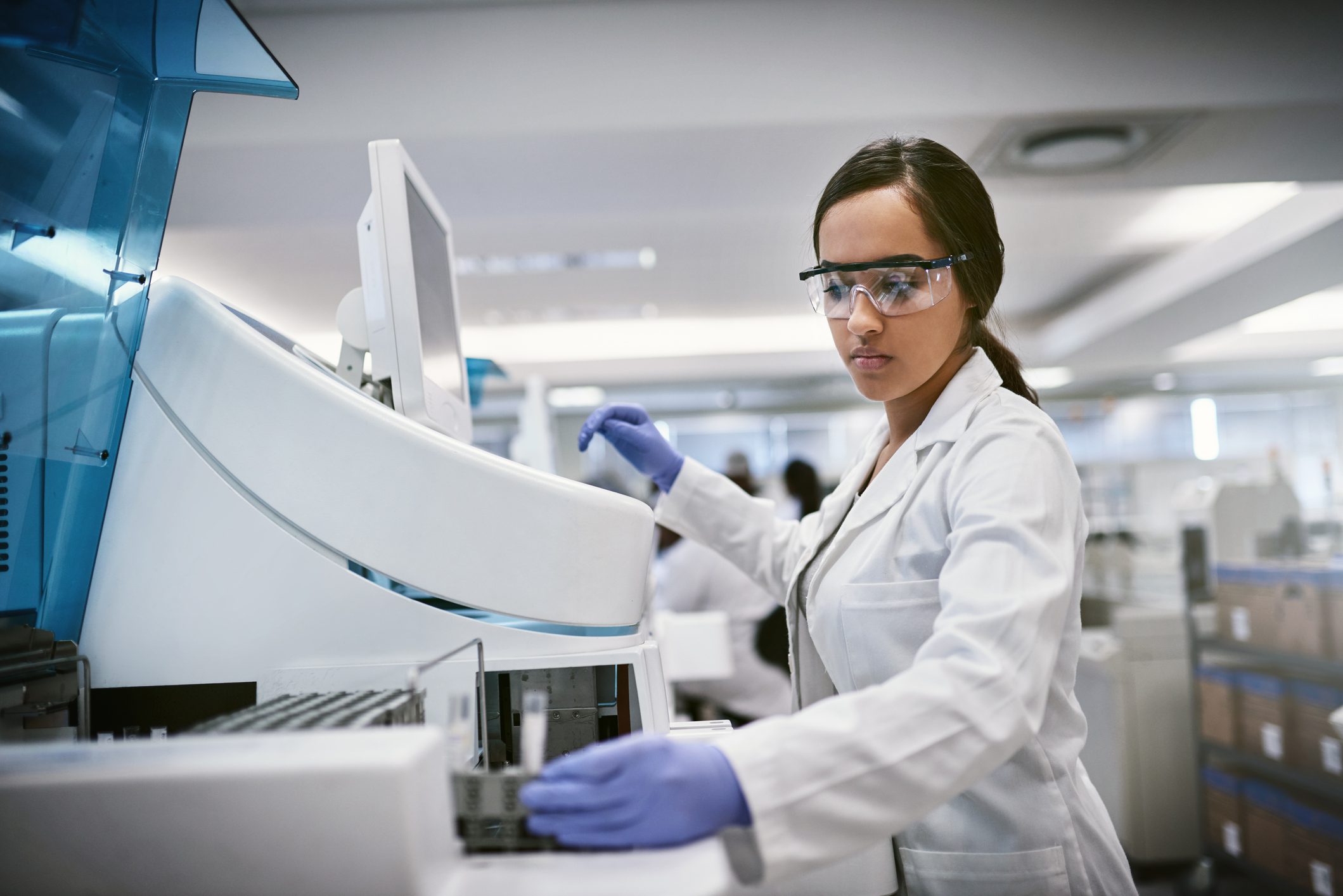
October 12, 2023
The Latest in Artificial Intelligence in Life Science

While artificial intelligence (AI) has been a part of our everyday lives for years, advancements in this technology have become more common within the life science industry fairly recently in comparison—and it could be on its way to transforming how new therapies and treatments are developed. Nearly 20 percent of life science companies in the San Diego area are engaging with AI and machine learning (ML), the FDA noted it has seen a “significant increase” over the past few years in the amount of submissions it receives for drug and biologic applications using AI/ML components, and there are more than 400 AI-driven drug discovery companies operating today. Artificial intelligence has applications in everything from medical devices (radiology and cardiology are top fields) to pharmaceuticals and more, and a report from Morgan Stanley estimates that AI/ML could develop dozens of new medicines over the next decade that will collectively be worth $50 billion. Here is some of the latest news and happenings in AI from Biocom California member companies.
New Platform for Antibody Screening
Ainnocence recently launched a new platform for antibody affinity maturation and de novo design to aid in better drug discovery. The platform is driven by SentinusAI, the company’s proprietary protein generative AI engine that screens large molecules, which it says can virtually screen up to 10 billion antibody sequences in timeframes from as short as a few hours to a few days. The Alabama-based company has a location in the Bay Area, and says its technology has applications in therapeutic antibody optimization, protein engineering, diagnostic assay development, vaccine design, and enzyme engineering.
$200 Million Series B Funding
Genesis Therapeutics made headlines last month when it secured a $200 million round of Series B financing to take its AI-enabled pipeline into the clinical development stage. The Bay Area company’s platform, called GEMS, uses generative and predictive AI methods to produce novel molecules and rapidly forecast how they might interact with the body. In a release, the company says their technology “is uniquely capable of identifying and enabling drug candidates for challenging, data-poor, and previously undruggable targets.” The technology was founded in Vijay Pande’s lab at Stanford University, where he was a Henry Dreyfus Professor of Chemistry and a professor of structural biology and computer science.
Building Better Prenatal Screenings and More
BillionToOne is working to develop non-invasive prenatal screening tests and liquid biopsies by utilizing its proprietary molecular counting platform, which the company says quantifies DNA fragments and may detect small variations in DNA that may be sparse in the bloodstream. In prenatal screenings, it could detect inherited conditions such as sickle cell disease and cystic fibrosis. Its liquid biopsies, Northstar Select and Northstar Response, are available for clinical and research purposes, and last year the Bay Area company entered a research partnership with UC San Diego to evaluate late-stage non-small cell lung cancer patient samples. In August, the company published a clinical validation study in Scientific Reports on the UNITY Fetal Antigen Noninvasive Prenatal Test (NIPT).
Digital Makeover
Earlier this summer, Sanofi announced its ambition to become “the first pharma company powered by artificial intelligence at scale,” according to a statement by CEO Paul Hudson, upon the rollout of its new in-house app, plai. The company developed the app with Aily Labs, which it says delivers real-time data interactions and “an unprecedented 360-degree view across all of the company’s activities.” Sanofi staff in a variety of departments—including R&D, clinical operations, manufacturing, and business analysis—can use the app’s tools to “make better and faster data-driven decisions.” Sanofi says its efforts to digitize its research with multiple in-house AI programs accelerated processes from weeks to hours, and that the plai app can predict 80 percent of low-inventory situations within its supply chain.
Multiple Applications
Johnson & Johnson recently outlined some of the ways the company utilizes AI, from collaborating with the Mayo Clinic to develop AI algorithms to help detect pulmonary hypertension (PH) and cardiac amyloidosis early on in patients, to drug discovery. For clinical trials, the company says its researchers are using AI and ML to analyze data and locate research sites that are currently working with patients who may benefit from the therapies being studied—this could potentially bring more trials to patients. The technology can also aid in diversifying clinical trials by identifying health institutions where diverse patients are more likely to be treated.
Tune In
And just in case you missed it, if you haven’t heard our podcast episode featuring Peyton Greenside, CSO at BigHat Biosciences, give it a listen! She delves into how the company engineers antibodies through AI and machine learning to accelerate the design of more effective treatments for patients.